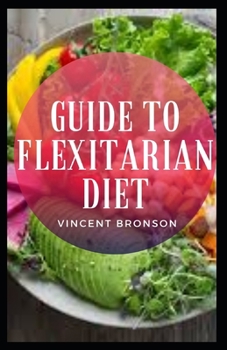Guide to Flexitarian Diet: Flexitarianism is an increasingly popular, plant-based diet that claims to reduce your carbon footprint and improve your health with an eating regime.
Plant-based diets are increasingly popular, but what are the health benefits of being a flexitarian? We asked a dietitian to give her view...Flexitarianism or 'casual vegetarianism' is an increasingly popular, plant-based diet that claims to reduce your carbon footprint and improve your health with an eating regime that's mostly vegetarian yet still allows for the occasional meat dish. The rise of the flexitarian diet is a result of people taking a more environmentally sustainable approach to what they eat by reducing their meat consumption in exchange for alternative protein sources. That's why the name of this diet is a combination of the words flexible and vegetarian.Vegetarians eliminate meat and sometimes other animal foods, while vegans completely restrict meat, fish, eggs, dairy and all animal-derived food products.Since flexitarians eat animal products, they're not considered vegetarians or vegans.The Flexitarian Diet has no clear-cut rules or recommended numbers of calories and macronutrients. In fact, it's more a lifestyle than a diet.Due to its flexible nature and focus on what to include rather than restrict, the Flexitarian Diet is a popular choice for people looking to eat healthier.However, following her specific recommendations is not required to start eating in a flexitarian way. Some people on the diet may eat more animal products than others.Overall, the goal is to eat more nutritious plant foods and less meat.Following a flexitarian diet highlights an increased intake of plant-based meals without completely eliminating meat. It is about adding new foods to your diet as opposed to excluding any, which can be extremely beneficial for health. These plant-based foods include lentils, beans, peas, nuts and seeds, all excellent sources of protein.It is also widely accepted that soluble fibre found in lentils and beans helps to reduce high cholesterol as part of a healthy diet, so including these regularly is definitely recommended. Nuts and seeds such as linseed (flaxseed), pine nuts, sesame seeds, sunflower seeds and walnuts are high in the heart-healthy polyunsaturated fats which help to maintain healthy cholesterol levels and provide essential fatty acids. Research has shown that practicing a flexitarian diet in conjunction with physical activity can promote a lifestyle consistent with recommendations for reducing risks of breast and prostate cancer.When people do choose to eat meat, opting for good quality lean meat is best, such as chicken or turkey. I would advise having processed meats such as bacon, sausages, salami, ham and p t s very occasionally as they are high in both saturated fat and salt and provide very little in the way of vitamins and minerals. Research from the World Health Organisation found that eating 50 grams of processed meat every day may increase the risk of colorectal cancer, so it's best to limit these foods.
Format:Paperback
Language:English
ISBN:B08R81Q939
ISBN13:9798586661968
Release Date:January 1
Publisher:Independently Published
Length:144 Pages
Weight:0.38 lbs.
Dimensions:0.3" x 5.5" x 8.5"
Customer Reviews
0 rating





